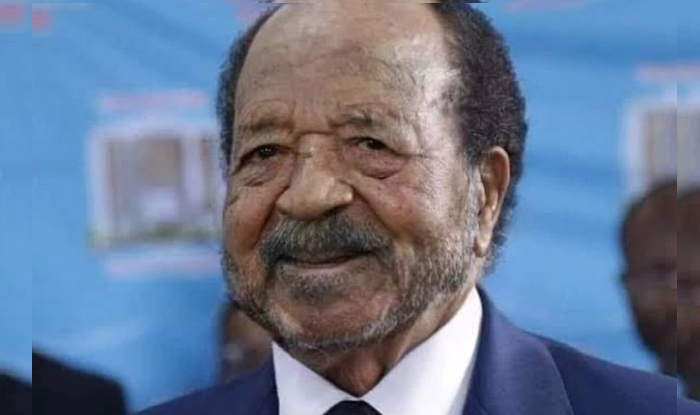Cameroon’s 92-year-old President Paul Biya held his first campaign rally Tuesday in the country’s restive Far North region, as the world’s oldest head of state seeks to extend his 43-year rule in the October 12 presidential election.
Addressing a crowd of supporters at a stadium in the town of Maroua, Biya promised to step up security in the region plagued by extremist attacks, curb youth unemployment, and improve road infrastructure and social amenities if he is elected for an eighth term.
“I am well aware of the problems that concern you, I know the unfulfilled expectations that make you doubt the future,” he said in his speech. “Based on my own experience, I can assure you that these problems are not insurmountable.”
Je vous invite à vous joindre à moi pour poursuivre cette belle aventure que nous avons commencée ensemble : la construction de ce Cameroun uni, prospère, démocratique et stable auquel nous rêvons tous. #Biya2025 #PaulBiya #Cameroun pic.twitter.com/nuQEM06riR
— President Paul BIYA (@PR_Paul_BIYA) October 7, 2025
Cameroon’s Far North Region, which has been plagued by attacks and kidnappings for ransom by the extremist group Boko Haram, accounts for nearly 20 per cent of the country’s 8.2 million eligible voters. Two of the nine opposition candidates in the election and Biya’s former allies — Bello Bouba Maigari and Issa Tchiroma Bakary — command a strong following in this majority Muslim region that is also one of Cameroon’s poorest.
The outing is Biya’s first in a campaign from which he has been noticeably absent, having only recently returned from a weeklong stay in Switzerland. No official reason for his stay abroad has been given, but the Cameroonian president has regularly traveled to Europe for private stays and medical treatment in recent years.
Biya is rarely seen in public, and critics say his capacity to govern has been severely limited by his age. During his decades in power, the Central African nation of nearly 30 million people has struggled with challenges from a deadly secessionist movement in the west of the country to chronic corruption that has stifled development despite rich natural resources like oil and minerals.
At least 43 per cent of the country’s citizens live in poverty as measured by core living standards such as income, education, and health, according to UN estimates.
Still, Biya is likely to prevail over the other candidates in the October 12 election, especially after his most threatening rival, Maurice Kamto, was barred from running in August and the opposition remains divided.
Most of Cameroon’s past elections have faced questions of credibility, with election authorities often accused of working in favor of Biya. Some of the election officers previously served in other roles in Biya’s government. A two-term presidential limit was removed through a parliamentary vote in 2008.


